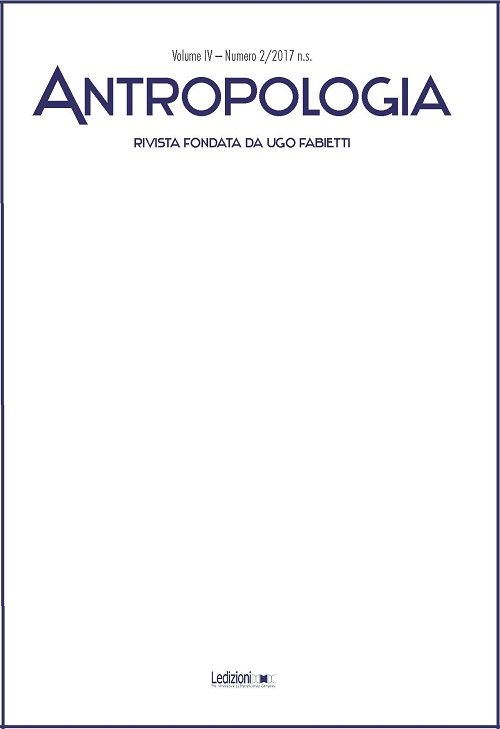Hospitality and the Ethnographic Fieldwork: Epistemology Of A "Impermanent Relationship"
DOI:
https://doi.org/10.14672/ada20171293%25pKeywords:
Pitt-Rivers, Hospitality, Epistemology, Fieldwork, Marginal urban areasAbstract
The author presents hospitality as a custom characterizing a geographical area, a noble ethnological object of the comparative tradition, but rather as a relational dispositif constitutive of the anthropological research gesture. By considering the text "The Law of Hospitality" in which Julian Pitt-Rivers defines hospitality as an "impermanent relationship", the author specifies some of its characteristic traits. These particularities are: the topological elements of a relational dispositif (the limiy); proximity and distance; inside and outside; inclusion and exclusion. The author illustrates its epistemological implications by indicating its relevance in the process of production of knowledge at the micro-social scale. Moreover, this dynamic architecture structures that space of communication (the inframezzo) in which conversations – the founding practice of anthropological research – can take place as "third space". Through this dispositif, the author reads his fieldwork experiences conducted in an Italian urban marginal area. In his conclusions, the author briefly mentions how this "impermanent relationship" reveals characteristics that the anthropological knowledge could offer today.
Downloads
Published
Issue
Section
License
Authors maintain the copyright of their original work and grant the Journal the right to first publication, licensed after 36 months under a Creative Commons Licence – Attribution, which allows others to share the work by indicating the authorship and first publication in this journal.
Authors may agree to other non-exclusive licence agreements for the distribution of versions of their published work (for example in institutional archives or monographs) under the condition that they indicate that their work was first published in this journal.



